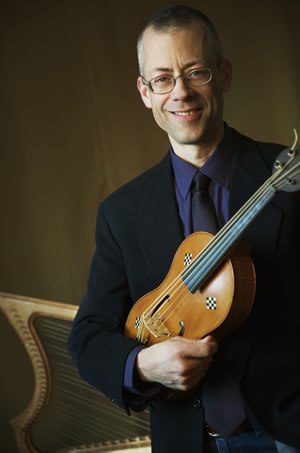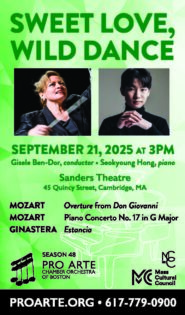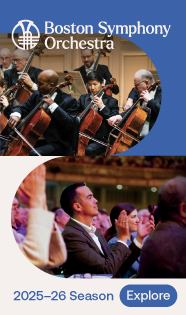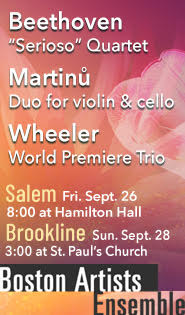Blue Heron offers a resplendent 15th-century program for the season

Scott Metcalfe directed Blue Heron’s program of French and Burgundian music Friday night in Cambridge.
For much of the fifteenth century, the people of France and Burgundy were in turmoil. The Hundred Years’ War had ravaged the land. Crop yields dwindled, the economy was in tatters, and social unrest drew new political alliances, some of which proved just as ineffective as the old order.
But for every individual, the Christmas season brought solace and renewed faith for a new year. This special time of fasting, prayer, and celebration focused intently upon music, ever a rich source of expression that reflected the beliefs and hopes of people caught in perpetual war.
When experienced today, such music retains freshness and vigor. In Blue Heron’s resplendent Christmas program heard Friday night at the First Congregational Church in Cambridge, music from fifteenth-century France and Burgundy welcomed the upcoming holiday with senses of wonder and grandeur.
There’s no mistaking the music of those troubled places and times. Composers such as Guillaume DuFay and Gilles Binchois wove voices into delicate tapestries of sound. Dissonances were carefully prepared and resolved within a polyphonic framework, and the close harmonic intervals that have since become staples of modern music rang sweetly in the ear.
No ensemble in Boston handles such repertoire with the richness and intimacy it deserves quite like Blue Heron. Prepared by Scott Metcalfe, the fourteen singers and instrumentalists of the group form a cohesive blend. Sopranos (called cantus at the time) lofted pristine lines over warm-toned countertenors and tenors. Basses anchored the texture with deep yet supple resonance. The emotions captured within this music were palpably rendered, and throughout the singers shaped the interlocking melodies with generous dynamic shading.
The chansons and motets on Friday’s program featured singers in groups of three, four, six, and ten, and effective use of the church space added dimension to the ensemble’s sound. A trio of women sang the chant “O virgo virginum” near the altar, the smooth, perfectly tuned phrases wafting like incense in the cavernous sanctuary. DuFay’s “Conditor alme siderum,” a motet that mixes chant with polyphonic verse, was split between nine singers. Surrounding lit candles at the altar, six singers answered the other three stationed near the nave with solemn and sensitive singing.
Antoine Brumel’s “Ave Maria,” though written several generations after DuFay’s motet, maintained the idiosyncrasies of the elder composer’s style. Melodies flowed in graceful arcs, and jarring harmonic progressions at the cadences—a Burgundian technique called a double leading tone—added delightfully eerie dissonances. Daniela Tošić, Pamela Dellal, and Jennifer Ashe sang each measure with the tenderness of a personal prayer.
Jacob Obrecht’s “Factor orbis,” with its densely woven musical fabric, had the conviction of a Sunday sermon. Josquin Desprez’s “O virgo virginem,” which unfolded at a glacial tempo, offered a serene counterbalance. So too did Johannes Regis’ “O admirabile commercium,” which captured the abiding joy of the season. And the imitative phrases and hockets delivered by Jason McStoots, Mark Sprinkle, Paul Guttry, and Steven Hrycelak, brought zest to Johannes Ciconia’s “Gloriae Spiritus et alma.”
The chansons on the program offered smaller though no less delectable treats. Mixing singers with instrumental accompaniment, the passages of Guillaume Malbecque’s “Dieu vous doinst bon jour et demy” bounded merrily. Tošić’s dark, lustrous voice complemented harpist Metcalfe and lutenist Charles Weaver in Nicolas Grenon’s “La plus belle et doulce figure,” each melisma twisting into soft curlicues. Metcalfe, Weaver, and rebec player Laura Jeppesen conveyed Johannes Tinctoris’ “De tous biens playne” with rustic flair, and Binchois’s “Margarite, fleur de valeur,” sung by Tošić, Stefan Reed, and Michael Barrett, seemed a dolorous expression of lost chivalry.
One wouldn’t expect a concert of such music to contain a world premiere. But Baude Cordier’s rare ballade “Dame excellent ou sont bonté, scavoir,” with a new strophe recently written by Fabrice Fitch, was heard for the first time Friday evening. Cordier’s lines danced and swelled beautifully before dying away, leaving listeners to wonder why this attractive work was only ever recorded in a single manuscript from the time (the popularity of work depended on its being recorded in multiple sources).
After generous applause, Blue Heron offered “Laudamus cum armonia” as an encore, its festive, fourteenth-century strains lifting spirits one final time for listeners headed home for the Christmas holiday. May it be filled with joy and mystery.
The program will be repeated 2:30 p.m. and 8 p.m. Saturday at the First Church, Congregational, in Cambridge. blueheron.org
Posted in Performances


